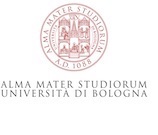MARTINA TAZZIOLIBorder Abolitionism: Migration Containment and
|
 |
|
These lectures focus on border abolitionism as a critical approach to migration governmentality and to the interlocking racialising mechanisms that sustain modes of differential confinement and exploitation. By mobilising abolitionism as an analytics, the first lecture will investigate the heterogeneous technologies of containment and forms of “proxy-detention” (Khalili, 2012) that people racialised as “migrants” are targeted by. It will insist on the effects of debilitation that these modes of containment generate on migrants (Puar, 2017), highlighting at the same time the processes of value extraction which stem from migrants’ involvement in “detention from below” practices and in unpaid labour activities. The second lecture will discuss the possibility of tracing a genealogy of rescue and struggles, exploring the extent to which the sedimented memory of solidarity has been reactivated in present mobilisations. Drawing on Ruth Gilmore’s concept of “abolition geography” which is predicated on the assumption that “freedom is a place” (Gilmore, 2017), it will interrogates the conditions for generating a transformative politics of migration. The third lecture will reflect on the partial continuities between forms of racialised confinement and prevarication that target both “migrants” and “non-migrants”, and on the “collective repertoire of struggles” (Bhandar, Ziadah, 2020) that a genealogy of these commonalities might foreground. Martina Tazzioli is Lecturer in Politics and Technology at the Department of Politics and International Relations at Goldsmiths (University of London). Her work, at the crossroad of critical overall explores the biopolitical mechanisms by which some subjects are racialised and governed as “migrants”, analysing the intertwining of modes of objectivation and subjectivities. More recently, she has investigated the technologization of the border regime and how technologies constitute a battlefield for migrants, states and non-state actors. She is part of the editorial collective of Radical Philosophy and member of the Euro-African network Migreurop that produces reports on migration, border externalisation and human rights violations. She published three monographs on migration and she co-edited two books on the work and uses of Michel Foucault. Martina is part of the Goldsmiths Migration Network she actively contributes to, and she coordinates the seminar series "Migration, Technology & Postcolonial Genealogies" in the department. |



